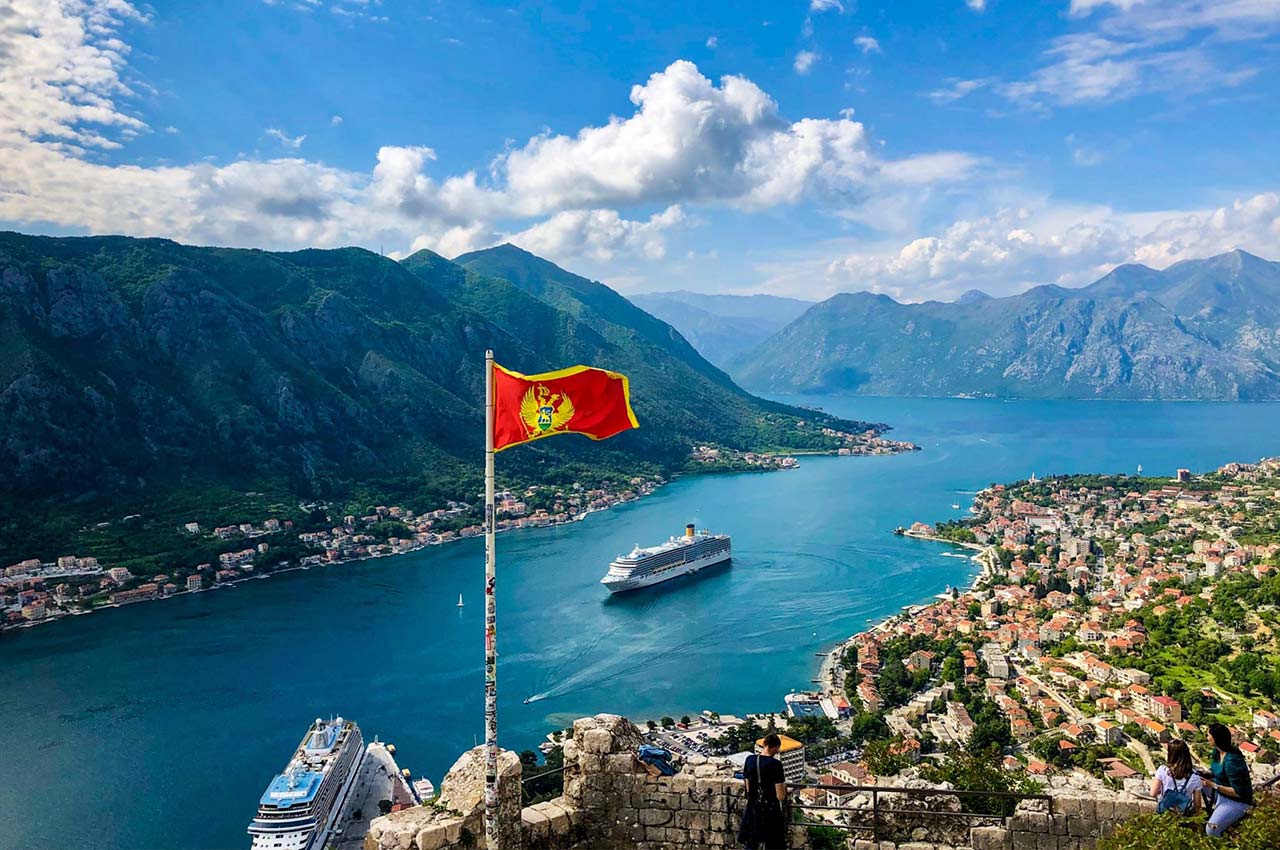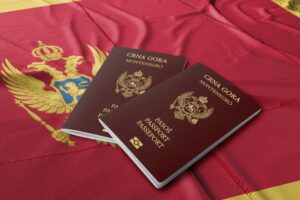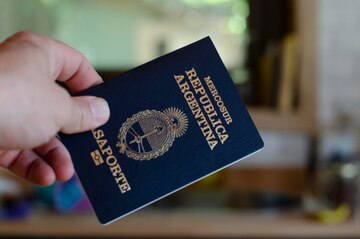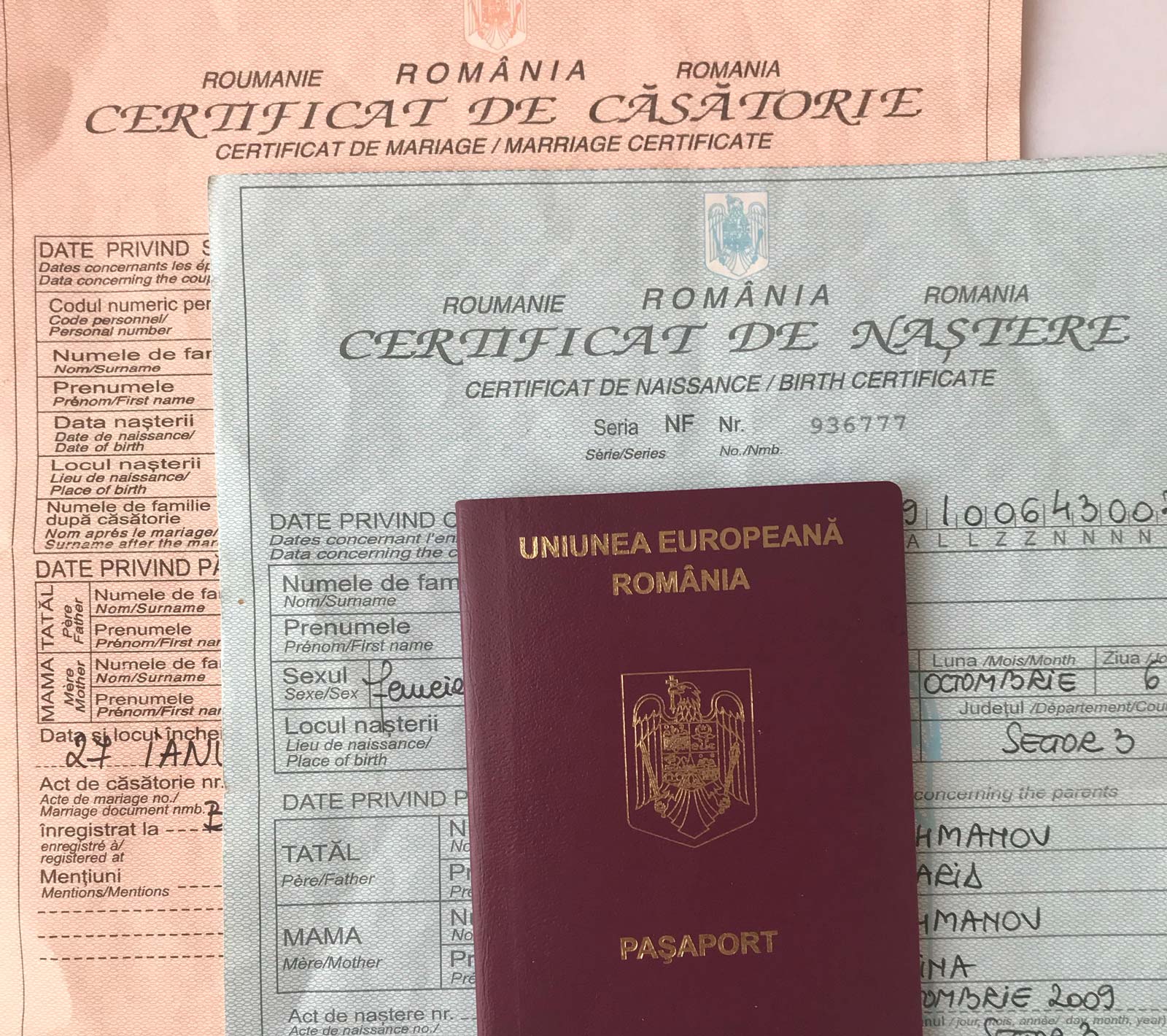Tax haven for foreign investors in Montenegro and Citizenship
Tax haven for foreign investors in Montenegro and Citizenship

Montenegro is a small Mediterranean country with a growing economy and a stable political situation. The country offers foreign investors a number of advantages that make it an attractive location.
Low taxes
Montenegro has a competitive tax system with a nominal tariff of less than 10%. The corporate tax rate is 9%, the personal income tax is between 0% and 15%. This makes Montenegro an attractive location for companies looking to reduce their tax burden.
Investment-friendly environment
The government of Montenegro has taken a number of measures to make the country more attractive to foreign investors. These include, among others:
• The introduction of customs and tax incentives
• Simplifying the process of setting up a business
• Improving infrastructure
These measures have helped make Montenegro a more attractive location for foreign investors.
Economic potential
Montenegro has great economic potential. The country has a number of natural resources including petroleum, natural gas and bauxite. Montenegro is also a popular tourist destination.
The euro as a currency
Montenegro is the only non-EU country that has the euro as its official currency. This offers foreign investors a number of advantages, such as lower volatility and easier pricing.
Foreign direct investment
In recent years, a number of foreign companies have invested in Montenegro. The largest investors include companies from the tourism, energy and construction sectors.
Attractive economic sectors
The following economic sectors are particularly attractive for foreign investors in Montenegro:
• Tourism: Montenegro is a popular tourist destination with a beautiful coastline, untouched nature and a rich history.
• Energy sector: Montenegro has a number of natural resources, including petroleum, natural gas and bauxite.
• Construction: Montenegro is investing in infrastructure and new construction projects.
Customs and tax incentives
The government of Montenegro has introduced a number of customs and tax incentives to make the country more attractive to foreign investors. Key incentives include:
• Customs exemptions for imports of manufactured goods
• Free technology transfers
• Tax exemptions for profits from investments
• Reduction of income tax for foreign workers
Conclusion
Montenegro is an attractive destination for foreign investors looking to invest in a growing market with a stable political environment. The country offers a number of advantages, including low taxes, an investment-friendly environment and great economic potential.
Montenegro’s Tax System: A Guide for Foreign Investors
Montenegro’s tax system is an important factor in the country’s increasing attractiveness for foreign investors. The system is competitive, modern and flexible.
Corporation tax
Corporate tax in Montenegro is only 9%. This is very low in international comparison.
Income tax
The income tax for natural persons is between 0% and 15%. This is also attractive compared to other countries.
Tax benefits
Montenegro also offers a number of tax advantages for certain industries, such as the tourism industry.
Modernity and flexibility
The Montenegrin tax system has undergone several reforms in recent years to bring it into line with European Union standards. The system is now uniform and transparent. The tax laws are clear and easy to understand.
Self-assessment
The principle of self-assessment applies in Montenegro. This means that taxpayers themselves calculate their tax liability and pay it to the tax authority. The tax authority only checks the taxpayer’s information for accuracy and completeness.
Double taxation agreement
Montenegro has signed double taxation agreements with over 40 countries. These agreements prevent companies and investors from being taxed twice in Montenegro.
Conclusion
Montenegro’s tax system is an attractive proposition for foreign investors. The low tax rates, the modern and flexible regulations as well as the double taxation agreements make the country an attractive location for investments.
Overview of taxes in Montenegro
Capital gains tax in Montenegro
Capital gains tax is a tax levied on income from investments. These include, for example, interest, dividends, price gains and profits from the sale of securities.
Withholding tax
In Montenegro, capital gains tax is withheld by the paying office and paid to the tax office. This also applies to capital gains from abroad. The withholding tax rate in Montenegro has been a uniform 9% since January 1, 2022.
Progressive taxation
The capital gains tax in Montenegro is not progressive, but uniform. This means that the tax rate is independent of taxable income.
Double taxation agreement
Due to the double taxation agreement between Montenegro and Austria, the capital gains tax in Montenegro can be reduced to 0% under certain circumstances. However, this only applies to capital gains that come from sources in Austria.
Loss carryforward
Companies have the option to carry forward losses for up to five years and offset them against future profits.
Withholding tax on real estate sales
If a non-resident sells a property to a buyer resident in Montenegro, a withholding tax of 9% is due on the capital gains. However, this withholding tax is not the final tax, but only a provisional payment. When filing your annual tax return, the actual tax liability can be calculated based on income, expenses and other factors.
Exceptions to withholding tax
However, there are some exceptions to withholding tax. For example, no capital gains tax deduction is required if the seller is an individual who has been a resident of Montenegro for at least five years or if the seller is a legal entity based in Montenegro. In these cases, the capital gains tax on the sales profit is only due as part of the annual tax return.
Tax refund
In Montenegro, there is an opportunity to recover capital gains tax based on losses or other tax relief.
Tax exemption for certain capital investments
In Montenegro, certain investments are exempt from capital gains tax. These include, for example, investments in certain government bonds or in certain funds.
Conclusion
The capital gains tax in Montenegro has been a uniform 9% since January 1, 2022. This tax rate applies to all capital gains, regardless of the type of income source. The withholding tax is withheld by the paying office and paid to the tax office. There is an opportunity to recover capital gains tax based on losses or other tax relief. In Montenegro, certain investments are exempt from capital gains tax.
Income tax in Montenegro
Montenegro offers employees and self-employed people very attractive tax rates compared to other European countries. The tax rates for employees and self-employed people in Montenegro are significantly lower than in Germany, Austria or Switzerland.
Tax rates for employees
A progressive tax rate applies to employees in Montenegro. This means that the tax rate increases as income increases. Income is tax-free up to a gross income of 700 euros. Between 701 and 1,000 euros, 9% is due. From 1,001 euros the tax rate is 15%.
Example: An employee with a gross income of 1,500 euros pays 225 euros in income tax in Montenegro.
Tax rates for self-employed people
For self-employed people and freelancers, a simple tax rate of 9% applies to all income in Montenegro.
Example: A self-employed person with an annual income of 12,000 euros pays 1,080 euros in income tax in Montenegro.
Additional council tax
In Montenegro, a municipal tax is levied in addition to the national income tax. The tax rate varies depending on the municipality and is between 13% and 15% of the national tax rate.
Tax deductions and tax credits
There are no joint income tax returns for married couples in Montenegro. There are also no tax deductions or tax credits for personal income tax returns.
Current tax laws
It is advisable to keep yourself informed about the current tax laws in Montenegro as they may change regularly.
Conclusion
Montenegro offers very attractive tax rates to employees and self-employed people. The tax rates are significantly lower than in many other European countries. This makes Montenegro an attractive destination for employees and self-employed people who want to save taxes.

Corporate tax in Montenegro
Montenegro offers companies an attractive tax landscape, characterized by low tax rates and a number of tax reliefs.
Corporate tax rate
The corporate tax rate in Montenegro is a flat 9%. This tax rate applies to all companies, regardless of their size or industry.
Corporate tax exemption
Companies operating in the underdeveloped northern areas of Montenegro can benefit from corporate tax exemption. This tax exemption applies to the first five years of operation and is limited to the first €300,000 in corporate taxes.
Local taxes
In addition to corporate tax, companies in Montenegro also have to pay local taxes. The amount of these taxes varies depending on the municipality.
Comparison with Germany
The corporate tax burden in Montenegro is significantly lower compared to Germany. In Germany, the corporate tax rate for companies has been 15% since 2023.
Conclusion
The low corporate tax burden in Montenegro is an important factor for companies wanting to invest in the country. The low tax burden can be a competitive advantage and improve the profitability of companies.
Property tax in Montenegro
Montenegro is a tax-friendly country with low tax rates. Wealth tax is not directly regulated in Montenegro, but indirect taxes such as property tax may apply.
Property tax
Property tax in Montenegro is 0.4% of the unit value of the property. The standard value is set by the municipality and is based on the market value of the property.
Income tax
The income tax in Montenegro is 9%. This tax is levied on the profits of companies and individuals.
Other taxes
In Montenegro there are no other taxes that directly affect assets. These include, for example, inheritance and gift tax, capital gains tax and sales tax.
Conclusion
Montenegro is an attractive location for companies and individuals who want to benefit from low taxes. Property tax is the only indirect tax levied on property in Montenegro. The income tax is 9% and applies to all companies and private individuals.
Overview of inheritance tax in Montenegro
Tax rates and allowances
In Montenegro, inheritance tax is graduated progressively. This means that the tax rate increases with the value of the inheritance. The tax rates are between 0% and 2.6%.
The amount of inheritance tax is calculated as follows:
Tax = inherited value * tax rate
Heirs of the first order
• Tax rates: 0% to 2.6%
• Allowance: €1,000,000
Heirs of the second order
• Tax rates: 1.2% to 1.8%
• Allowance: €500,000
Heirs of the third order
• Tax rates: 1.6% to 2.2%
• Allowance: €250,000
Heirs of the fourth order and above
• Tax rates: 2.0% to 2.6%
• Allowance: €0
Calculation of inheritance tax
Example
A testator leaves assets of €1,000,000. The heir is his son. The tax rate for heirs of the first order is 2.6%. The inheritance tax is therefore:
Tax = €1,000,000 * 2.6% = €26,000
Deadline
Inheritance tax must be paid within 60 days of the inheritance.
Foreign heirs
Foreign heirs are also obliged to pay inheritance tax in Montenegro. However, the tax rates and allowances are slightly higher for foreign heirs than for Montenegrin heirs.
Conclusion
Inheritance tax in Montenegro is progressive and depends on the degree of relationship between the testator and the heir. However, there are some allowances that apply to certain relatives.
Taxes on real estate in Montenegro
An overview of the most important types of taxes
If you want to buy or sell a property in Montenegro, you should be aware of the applicable taxes. The following information provides an overview of the most important types of taxes:
Real estate transfer tax
The property transfer tax in Montenegro is 3% of the purchase price for properties with a purchase price of up to 150,000 euros. For properties with a purchase price of over 150,000 euros to 500,000 euros, the property transfer tax is 5% of the purchase price. For properties with a purchase price of over 500,000 euros, the property transfer tax is 6% of the purchase price.
VAT
When purchasing a new property, an additional VAT of 21% is due. The VAT is paid by the seller to the responsible tax authority and is usually included in the purchase price.
Capital gains tax
If you sell a property in Montenegro, you may have to pay capital gains tax. The amount of the tax depends on the capital gain, which is the sales price minus the purchase price and the costs of maintaining the property. The capital gains tax in Montenegro is:
• 9% if the capital gain is EUR 500,000 or less
• 14% if the capital gain is between EUR 500,000 and EUR 1,000,000
• 15% if the capital gain is EUR 1,000,000 or more
Rental
If you rent out a property in Montenegro, you will also have to pay taxes. The tax rate for renting real estate to private individuals is 9% of the rent. For renting real estate to tourists, the tax rate is 7% of the rent. You also have the option to deduct a flat rate of 40% of the income or the actual costs associated with the rental before calculating the amount of tax due.
Other taxes
In addition to the taxes mentioned above, other taxes may also apply to real estate in Montenegro, e.g. E.g.:
• Property tax: Property tax is collected annually by the municipality and is usually 0.08% to 1.0% of the estimated cadastral value.
• Customs duties: Customs duties may apply when importing real estate into Montenegro.
• Taxes on inheritance and gifts: Taxes may apply when real estate is transferred through inheritance or gift.
Advice
It is important to find out about all applicable taxes and fees in advance to avoid any surprises. If you have any further questions, please feel free to contact a tax advisor.
Taxes on bank interest in Montenegro
Tax liability for foreign investors on interest income:
As a foreign investor in Montenegro, you are obliged to pay a tax of 5% on interest income from bank deposits in Montenegro. This tax is withheld directly by the bank and paid to the tax office.
Tax liability for interest income from bank deposits:
Tax liability applies to all interest income from bank deposits in Montenegro, regardless of whether the investor is an individual or a legal entity.
Tax exemption for certain interest income:
In certain cases, interest income for foreign investors in Montenegro is exempt from tax. This applies, for example, to interest income from:
• Bank deposits granted by a development bank
• Bank deposits granted by a government or a government entity
• Bank deposits granted under an international agreement
Information about tax regulations:
To find out about the current tax regulations for foreign investors in Montenegro, you can visit the website of the Ministry of Finance of Montenegro. There you will find further information about tax rates, exemption regulations and application forms. You can also contact us. We support you with all questions and concerns regarding the tax liability of foreign investors.
Taxes on real estate in Montenegro:
The property tax
An overview of the most important regulations
Property tax rates
In Montenegro, property tax is levied on real estate. Tax rates range from 0.25% to 1% of the estimated cadastral value of the property. The cadastral value is set by the Government of Montenegro and is based on a number of factors, including the size, location and type of property.
Tax liability
Property tax is generally paid by the owner of the property. However, if the property is rented out, the tenant is responsible for paying property taxes. In this case, property tax is deducted from the rent.
Payment dates
Property tax in Montenegro is usually paid in advance every six months. The first installment is due by June 30th of the current year, the second installment by December 31st of the current year.
Exceptions to property tax liability
The following properties, among others, are exempt from property tax liability:
• Land used for agricultural purposes
• Land used for public purposes
• Land used for social purposes
Possibility of objection
If you disagree with a property tax assessment, you can file an appeal within 30 days of receiving the assessment.
Taxes on goods and services in Montenegro:
VAT
An overview of the most important regulations
Value Added Tax (VAT)
Value added tax (VAT) is an indirect tax levied on the sale of goods and services. In Montenegro the regular VAT rate is 21%. A reduced rate of 7% applies to certain goods and services, while VAT is completely waived for other goods and services.
Regular VAT rate
The regular VAT rate of 21% applies to the sale of the following goods and services:
• Goods and services manufactured or produced in Montenegro
• Imports from countries outside the European Economic Area (EEA)
• Services provided by companies with an annual turnover of at least 18,000 euros
Reduced VAT rate
The reduced VAT rate of 7% applies to the sale of the following goods and services:
• Staple foods
• Books, newspapers and magazines
• certain medications
• Services in the field of education and culture
• Health and social care services
VAT exemption
The following goods and services are exempt from VAT:
• Exports to countries outside the EEA
• Deliveries of goods and services to the public sector
• certain financial services
• certain insurance policies
VAT registration
Companies selling goods or services in Montenegro must register with the tax authority if their annual turnover exceeds 18,000 euros.
VAT calculation
VAT is calculated on the net price of the goods or services. The net price results from the gross price minus VAT.
Example: A company sells a television for 1,000 euros. The regular VAT rate is 21%. The VAT for the television is therefore 210 euros. The net price of the television is 790 euros.
Sales tax refund
Companies exporting goods or services in Montenegro can get a refund of the VAT paid. The refund can be requested from the tax authority.
Tax debtor principle
In Montenegro, VAT is a tax liability principle. This means that the buyer pays VAT to the company that supplies the goods or services.
Input tax deduction
In Montenegro, VAT is an input tax deduction. This means that businesses can deduct the VAT they pay on inputs from the VAT they collect on their own supplies and services.
Annual tax procedure
VAT in Montenegro is an annual tax procedure. Companies must submit their VAT returns and payments once a year.
Conclusion
VAT is an important tax in Montenegro. Companies selling goods or services in Montenegro should inform themselves about the exact regulations of VAT.
Social contributions in Montenegro
An overview of the most important regulations
Social security contribution
In Montenegro, employers and employees are obliged to pay social security contributions. The contributions are levied on the employee’s gross salary.
Employer share
The employer’s share of social security contributions is 5.5% for pension and disability insurance and 0.5% for unemployment insurance.
Employee share
The employee share of social security contributions is 15% for pension and disability insurance and 0.5% for unemployment insurance.
income tax
Local governments levy a payroll tax of 13% to 15% on employee salaries, depending on the municipality.
Labor Fund
A fee of 0.2% on gross salaries is charged to maintain a labor fund.
Conclusion
Social security contributions in Montenegro are relatively high for employers and employees. The income tax varies depending on the municipality.
Tax treatment of pensions in Montenegro
An overview
Moving from Germany to Montenegro in retirement raises questions about the tax treatment of pensions and pensions. In principle, Germany has the right to tax retirement benefits that come from a German source. Pensioners who live in Montenegro can still be subject to limited tax liability in Germany. However, the double taxation agreement between Germany and Montenegro (DTA) regulates whether and to what extent earnings are actually taxable in Germany.
Article 18 of the DTA
Article 18 of the DBA regulates the taxation of pensions and pensions. According to paragraph 1 sentence 1 of Article 18, pensions and pensions paid to a taxpayer resident in Montenegro by a person resident in Germany are to be taxed in Montenegro. This applies regardless of whether the income comes from a German or a Montenegrin source.
Exceptions
However, the second sentence of paragraph 1 of Article 18 provides for a number of exceptions. Pensions and pensions paid as a result of public service in Germany are not taxable in Montenegro. This also applies to pensions and pensions that are paid due to deployment in an international military or civilian mission.
Limited tax liability
According to paragraph 2 of Article 18, pensions and pensions paid to a taxpayer resident in Montenegro by a person resident in Germany are taxable in Germany only if the taxpayer is paid in the calendar year preceding the year in which the pension or pension is paid , was resident in Germany for at least 183 days.
Assessment basis
The assessment basis for taxation of pensions and pensions in Montenegro is the gross amount of remuneration. There are no allowances or flat rates.
tax rate
The tax rate for pensions and pensions in Montenegro is 15%.
Impact on pensioners and retirees
Retirees and pensioners moving to Montenegro should inform themselves about the tax implications of their move. As a rule, it is advisable to seek advice from a tax advisor.
Montenegro’s taxes: taxes on cryptocurrencies and crypto assets
In recent years, trading cryptocurrencies and cryptoassets has become one of the most popular forms of investing. More and more investors are choosing to buy and sell Bitcoin, Ethereum, Dogecoin and other cryptocurrencies. But what about the taxation of profits from these investments in Montenegro?
Legal framework
Montenegro is not a member of the European Union, but an associated country. In recent years, the country has made efforts to create an attractive tax policy for investors, including in the area of cryptocurrencies and cryptoassets.
Tax treatment of cryptocurrencies and cryptoassets
Although there are currently no specific tax regulations for cryptocurrencies in Montenegro, profits from these investments are treated as capital gains and therefore must be declared in the income tax return. The amount of tax depends on the personal tax rate, which depends on the investor’s income.
Cryptocurrencies and cryptoassets are considered “economic assets” in Montenegro. This means that profits from trading or selling these assets can also be taxed as profits from the sale of assets.
Tax treatment of mining and staking
Profits from mining and staking must also be declared in Montenegro. However, the tax rules in this area are somewhat more complicated as they depend on various factors, such as the type of cryptocurrency being mined or staked, the amount of income from this activity and the scope of the activity itself.
Tax treatment of commercial crypto trading
Similar tax regulations apply to commercial crypto trading in Montenegro as to trading other securities. Profits from cryptocurrency trading are treated as business income and are subject to income tax. The amount of the tax also depends on the personal tax rate.
Overall tax assessment
Overall, Montenegro is considered a tax-efficient country for crypto investors. However, there are a few things to consider, especially when it comes to the exact taxation of profits from cryptocurrencies and crypto assets. It is advisable to seek professional advice to ensure compliance with all tax regulations.
Other factors
Crypto investors considering moving to Montenegro to benefit from the country’s attractive tax policy should also consider other factors, such as the country’s cost of living, political environment and infrastructure.
CryptoTaxes.info
On the KryptoTaxes.info website you will find comprehensive information on the taxation of profits from cryptocurrencies and cryptoassets in Montenegro, as well as other tax-favorable or tax-disadvantageous countries for crypto investors.

Residence and Citizenship Solution Pre-requisites for Montenegro
All applicants individually will be required to follow the process given below.
- In the country where applicants reside Step 1: For Primary Applicant:
A 1- Documents to be legalised: - A complete copy of the passport (all pages, including covers)
- Coloured copies of birth certificates, residence ID & electronic marriage certificate or marital status if not married (Note: Electronic marriage certificate issuance date should not be more than 6 months at the time of Biometrics date)
- Police Clearance Certificate (from the country in which he lived from the past 12 months)B 1– For Dependents (above 16):
- To provide continuing studies/school enrolment proof
- Proof of financial dependence on the applicant (For e.g. In case dependent is above 18, tuition fees payment, bank statements from the kid and main investor showing the transfers, enrolment certificate.)
- Police Clearance Certificate of all dependents from the Residence & nationality Country (if different) issued within last 3 months, duly legalized by apostille certification
- All other documents to be complied as per primary applicant except sworn statement & declaration issued by Montenegrin tax & customs authorities
Note: The dependent that is above 18 years old MUST be unemployed. If he/she is not unemployed the application will not be possible.
It’s mandatory that all the foreign documents are officially translated to Montenegrin and legalized with apostille certification. (If your country has not signed Apostille Hague convention, the legalization of the documents needs to be done to the documents translated into English and presented at the Montenegrin Consulate or Embassy corresponding to the country of origin of the documents).
Apostille Certification
Please, find below the countries that have recognized apostille legalization. If the country issuing your documents is not on the list below you will need to request a Montenegro Embassy to certify/legalize your documents:
Albania, Andorra, Argentina, Armenia, Azerbaijan, Australia, Austria, Belarus, Belgium, Bosnia and Herzegovina, Belize, Bulgaria, Burkina Faso, Canada, Chile, China, Costa Rica, Croatia, Cyprus, Czech Republic, Denmark, Ecuador, Estonia, Egypt, Finland, France, Georgia, Germany, Greece, Hungary, Iceland, India, Ireland, Israel, Italy, Japan, Jordan, Kazakhstan, Korea (South), Latvia, Lithuania, Luxembourg, Liechtenstein, Malaysia, Macedonia, Malta, Mauritius, Mexico, Monaco, Moldova, Morocco, Netherlands, New Zealand, Norway, Panama, Paraguay, Peru, Philippines, Poland, Montenegro, Romania, Russian Federation, Serbia, Singapore, Slovakia, Slovenia, South Africa, Spain, Sri Lanka, Suriname, Sweden, Switzerland, Tunisia, Turkey, Ukraine, United Kingdom, Ireland, Uruguay, USA, Venezuela, Vietnam and Zambia.
Validity of such apostilled documents is only 6 months so to avoid doing it again all over, submission to law firm is suggested in 30 days.
Step 2: Montenegrin lawyer will obtain a Montenegro Company where all the Family Members are a Shareholder as investor’s behalf by virtue of the earlier signed POA
Step 3: Montenegrin lawyer will obtain a Montenegro Tax ID/NIF for an applicant & dependents on investor’s behalf by virtue of the earlier signed POA
Step 4: Montenegrin lawyer will open bank account in Montenegro by virtue of the earlier signed POA
Step 5: Signing a Pre -Contract to buy the Property from GCI UNIT Montenegro
Step 6: Transfer investment amount into Montenegrin Company bank account:
The bank will provide an affidavit of the transferred funds. (This is the declaration stating that the INVESTMENT FUND complies with the Montenegro Residency Regulation.
Step 7: Apply for a Residency Card of Montenegro
Once the Visa investment threshold is achieved, Montenegrin lawyer will apply for the Visa.
The application itself is compressed of 3 main steps:
- Application: The Immigration Office will analyse and rule on the application submitted online. Means that the Immigration Offices confirms the documentation is complete and valid, allowing you to move forward to the actual submission of the original documentation and biometrics collections (fingerprint scanning, digital photo and digital signature);
Montenegrin lawyer to schedule an appointment for documentation submission and biometrics collection.
2) Visit to Montenegro for application:
An appointment will be booked with Government by Montenegrin lawyer to do the following:
Step 1: To submit the complete residence permit application for the applicant & all dependents along with following documents:
- The Purchase and Sale Public Deed or the Promissory Purchase and Sale Agreement which shall include a declaration issued by a bank certifying the effective transfer of investment;
- Up-to-date land registry certificate attesting the name of the investor as the owner of the real estate (Montenegrin lawyer to collect this for you)
- Purchase the property in co-ownership, provided each co-owner invests the amount equal or greater than minimum investment required for the selected option;
(In case of Co-ownership)
- Promissory Sale and Purchase Agreement that requires the down payment of an amount equal or greater than minimum investment requirement. In case of the Promissory Purchase and Sale Agreement with the down payment of minimum required investment, the actual purchase of the real estate must be completed before the first renewal of the residence permit;
- Filling in the Application Form (standard form) stating the authorization for consultation of the Montenegrin Criminal Record (to be requested directly to the authorities by Portuguese lawyer)
- Payment receipt for analysis of the application
- Passports with entry stamp and all certified civil documents of the country where applicants reside (covered in Part 1)
- Evidence of entry and legal stay in the National Territory (Provided at the time biometrics)
- Tax and Social Security declaration by Montenegrin Tax Authorities (Covered in Part 1)
- Application form of the Right to Family Reunification
- The health insurance will be required when the applicants starts residing in Montenegro
After around 5 -8 years, depending of qualification, you can apply for the second Citizenship of Montenegro! (The Law can be change, if we see the Reform in Germany for example)
————–
TCME – Group worldwide is a leading professional international foreign trade relations investment and consulting firm, with 17 different departments spread in different countries around the world, with its head office in Malaysia.
We’ve helped thousands of people take their businesses abroad, legally reduce their taxes, and become dual citizens. We focus on high-net-worth individuals and their families as well as businesses, where we design and implement bespoke, holistic strategies for successful investors and entrepreneurs to legally reduce their tax burden, diversify and protect their wealth, invest abroad, a second citizenship and to live a freer life worldwide.
Another special area of our full-service consulting is the investment opportunity and solution in Europe, especially in the Balkans, Africa, Asia, the United Arab Emirates, the Caribbean and the Pacific.
Our legal team and our 200+ multi-disciplinary team have more than 25 years of global experience in the different Consulting Areas. Governments as well as the super-rich trust in our expertise in consulting. If you are looking for it, please feel free to contact us. We create a holistic plan that serves your purpose.
YOUR CHANCE FOR A BETTER LIFE
Our range of services includes:
• Offshore and Onshore Company Formation,
• executive Search,
• IT & Cyber Security Protection
• international Business & Management Consulting
• Citizenship & Residency
• Investments & Corporate Financing
• Mining and Trading
• Advisory for Foreign Economic Relationship
• Diplomatic Consultancy & Public Affairs
If you would like to discuss your internationalization and diversification plans, book a consulting session* or email us under: [email protected]
*A counseling session is a conversation about your portfolio and goals. It does not constitute legal, financial, tax or investment advice.
TCME Worldwide Group – Global Investments –
Level 33, Ilham Tower, 8 Jalan Binjai,
Kuala Lumpur 50450, Malaysia
www.tcme.company
www.citizenship-news.com
Phone: +66 99091 8357 also for WhatsApp
[email protected]






